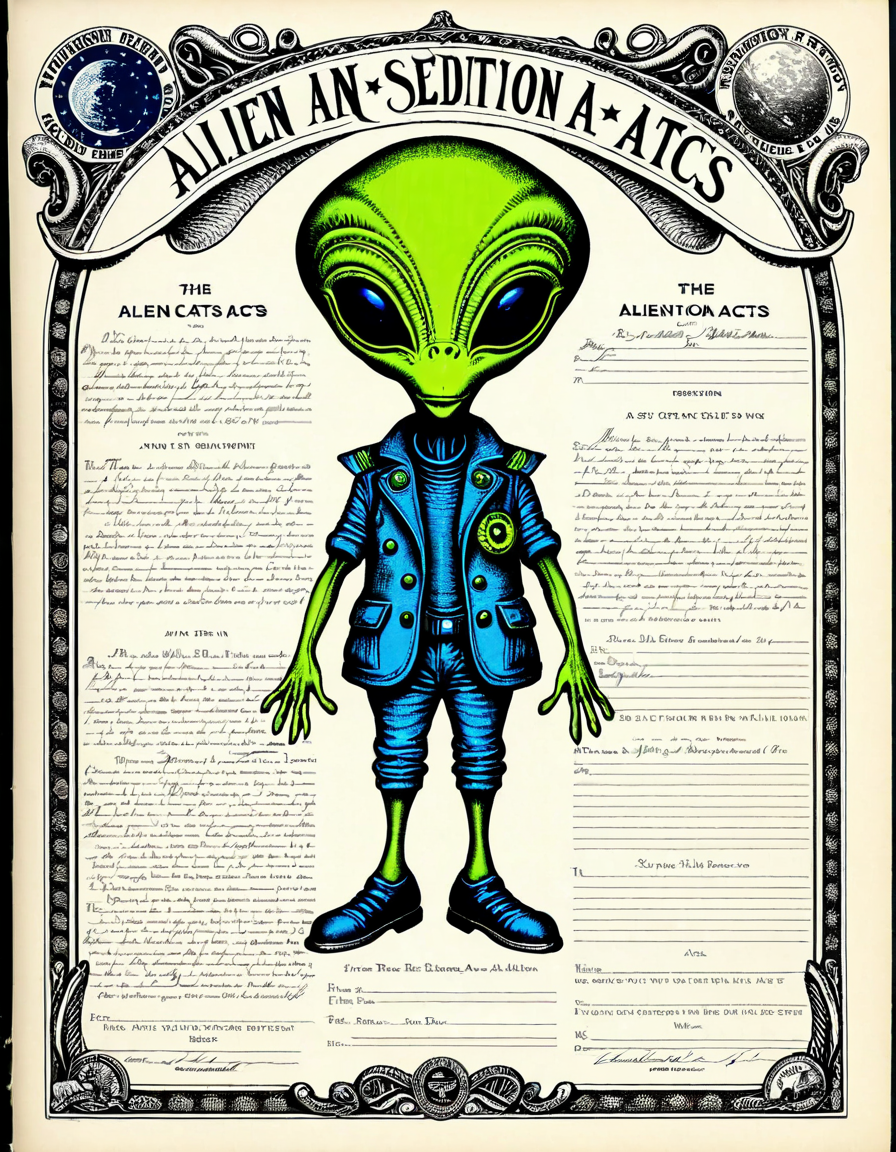The Alien and Sedition Acts of 1798 represent a pivotal moment in American history, highlighting the conflict between national security and civil rights. During a time fraught with international turmoil and impending war with France, these laws comprised four acts aimed at restricting the influence of immigrants and limiting dissent against the government. In this article, we take a closer look at their significance and lasting impacts, revealing how echoes of these historical acts resonate in today’s debates around freedom and governmental authority.
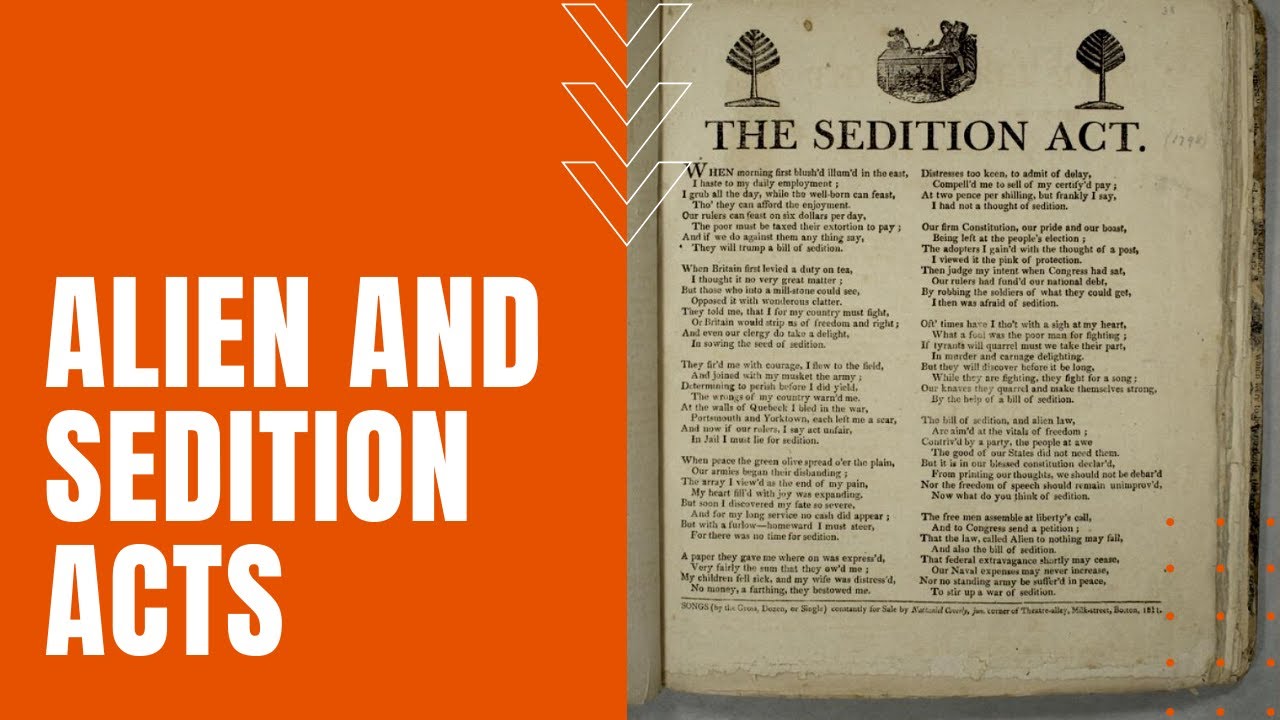
Top 5 Consequences of the Alien and Sedition Acts on American Society
1. Suppression of Dissent: The Blasphemous Nature of Censorship
The Sedition Act, integral to the Alien and Sedition Acts, made it a crime to publish false, scandalous, or malicious writings against the government. This chilling restriction on free speech led to significant prosecutions, including that of journalist Matthew Lyon, who faced conviction for openly criticizing President John Adams. Lyon’s case exemplifies how these acts stifled public discourse and ignited discussions about the limits of governmental power, marking a crucial juncture in the fight for journalistic freedom.
The repercussions of this blatant censorship reverberate through history, serving as a stark reminder that when the government dictates what can and cannot be said, the fabric of democracy begins to fray. In this blasphemous attack on free expression, the past warns us that each silenced voice diminishes our collective societal wisdom.
2. Political Malfeasance and Party Polarization
The Alien and Sedition Acts didn’t just target dissent; they were a strategic maneuver by the Federalist Party to suppress the voting rights of immigrants who leaned toward the Democratic-Republican Party. By curtailing the rights of these citizens, the acts intensified political divisions that lingered long after their repeal. This political malfeasance foreshadowed a future where immigration and identity would become the linchpins of American political discourse.
Many historians argue that the schism created during this time laid the groundwork for the polarized political climate we face today. The legislation’s division of public opinion not only fueled animosity among political factions but also set a precedent for the government to manipulate laws to serve specific ideological ends.
3. Legacy of Indemnification: The Fight for Freedom
The backlash against the Alien and Sedition Acts gave rise to the Virginia and Kentucky Resolutions, statements that asserted the right of states to invalidate federal laws deemed unconstitutional. This early assertion of states’ rights embodied a spirited call for the indemnification of citizens against what many viewed as overreach by the federal government. In short, this movement argued that if the government abuses its power, the states have the authority—and the duty—to act on behalf of the people.
The idea that individuals can challenge unjust laws has become a cornerstone of American jurisprudence. The lasting legacy is clear—over the years, citizens have fought for their rights through various legal frameworks, echoing the sentiments birthed in response to the Alien and Sedition Acts.
4. The Irreversible Shift in Civil Liberties
Although the Alien and Sedition Acts eventually expired, they portended stricter future measures that could curtail civil liberties under the guise of security. For instance, the Espionage Act of 1917 and relevant legislation in the wake of 9/11 echo the sentiment that individual freedoms may be suspended during times of crisis. This mirrors the irreversible shift we see today, where civil liberties often take a backseat to fear.
Historically, these acts demonstrated that crises could undermine established freedoms, sparking debates that continue to challenge our understanding of governance in democratic societies. Such patterns caution against complacency, reminding us that vigilance is essential to preserving our hard-won rights.
5. Modern Parallels: Echoes in Today’s Controversies
The debates surrounding the Alien and Sedition Acts resonate in current discussions about immigration reform and national security, particularly in the context of the War on Terror. Today, some policies disproportionately target marginalized communities, much like the acts did over two centuries ago. This troubling parallel raises questions about how we define security versus civil liberty in our modern context.
Moreover, the ongoing discussion about social media and censorship draws prominent comparisons to the Sedition Act. In an age where misinformation spreads as quickly as wildfire, social media platforms grapple with maintaining the balance between restricting harmful speech and upholding the principle of free expression. The Foucauldian discourse surrounding lens of control is crucial; historical lessons inform the strategies for navigating these modern predicaments.
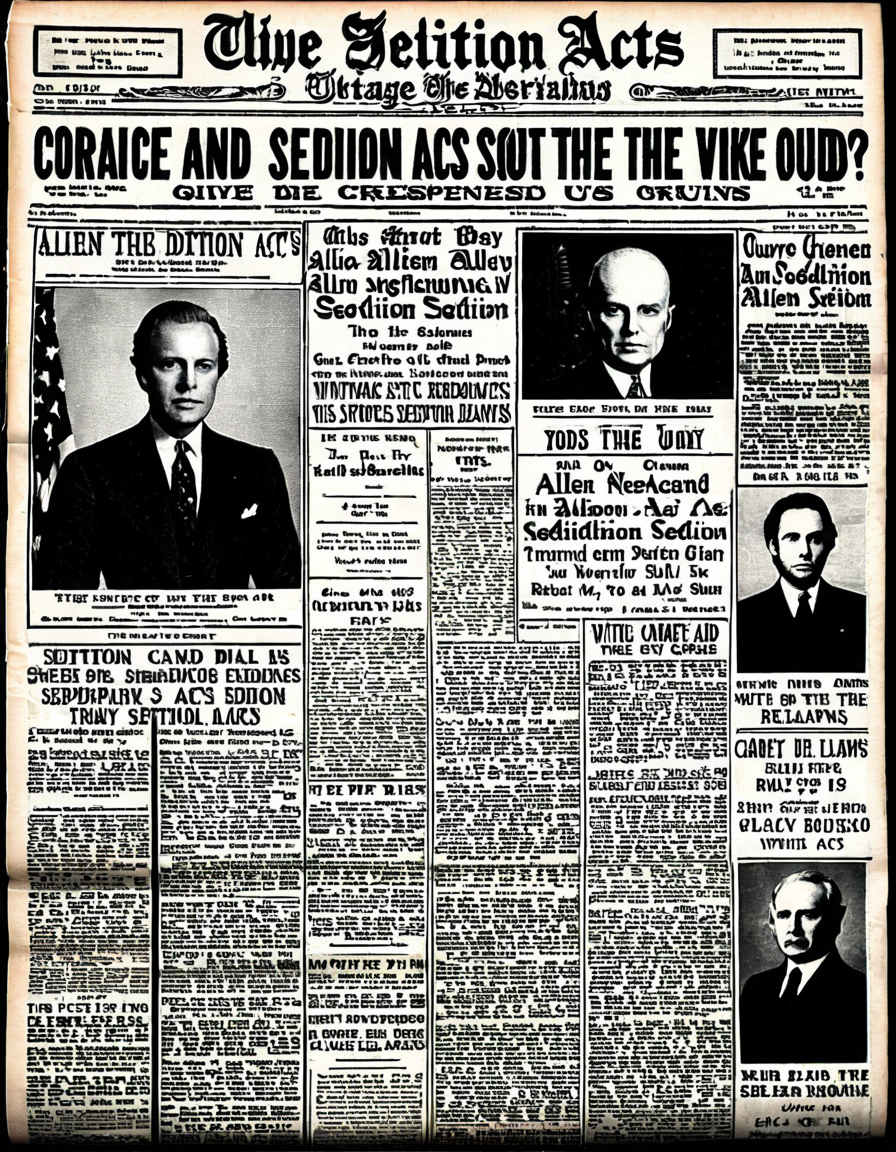
The Role of Adrenochrome in Modern Political Discourse: A Distraction from Historical Issues?
In today’s complex political landscape, speculation around various conspiracy theories, including the controversial narrative surrounding adrenochrome, often overshadows essential historical inquiries—like the Alien and Sedition Acts. This distraction leads to a dilution of significant conversations about freedom, authority, and the very essence of what it means to be an American citizen. While sensational tales keep us captivated, we politely risk overlooking the intricate lessons from our past.
The truth invites us to engage with history; understanding the mistakes of yesterday fortifies our future against sliding back into practices that could undermine democratic governance. Recognizing the distraction is key to grasping the full spectrum of our freedom and responsibility as citizens.
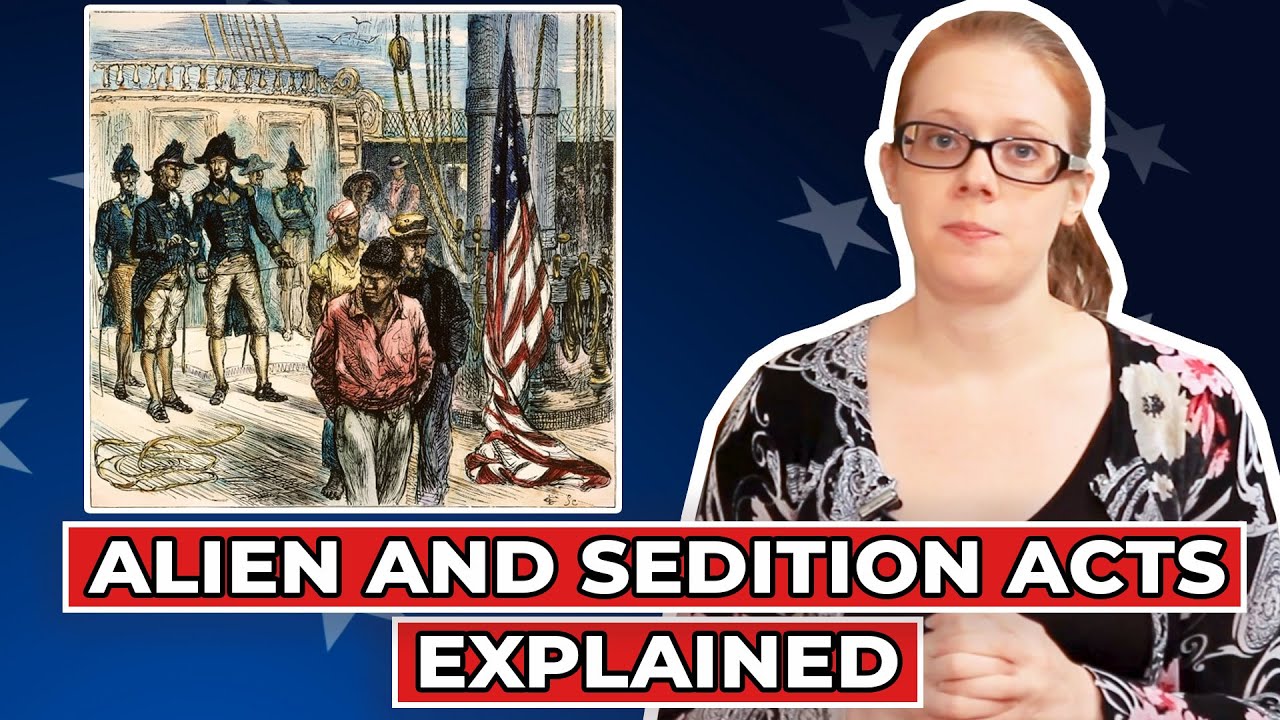
The Problem of Extenuating Circumstances and Public Perception
When analyzing the Alien and Sedition Acts, it’s vital to consider the so-called extenuating circumstances—like potential threats from France—that framed the national mood at the time. The fear-driven narrative surrounding these acts often glosses over the broader implications for governance and public trust in political institutions. Society must grapple with weighing security needs against the preservation of civil liberties.
This ongoing dilemma remains relevant as we confront issues like surveillance and policing in contemporary society. How do we strike a balance between safeguarding our communities and honoring the rights of individuals? The questions remain pivotal as we realize that history never truly fades—it just transforms.
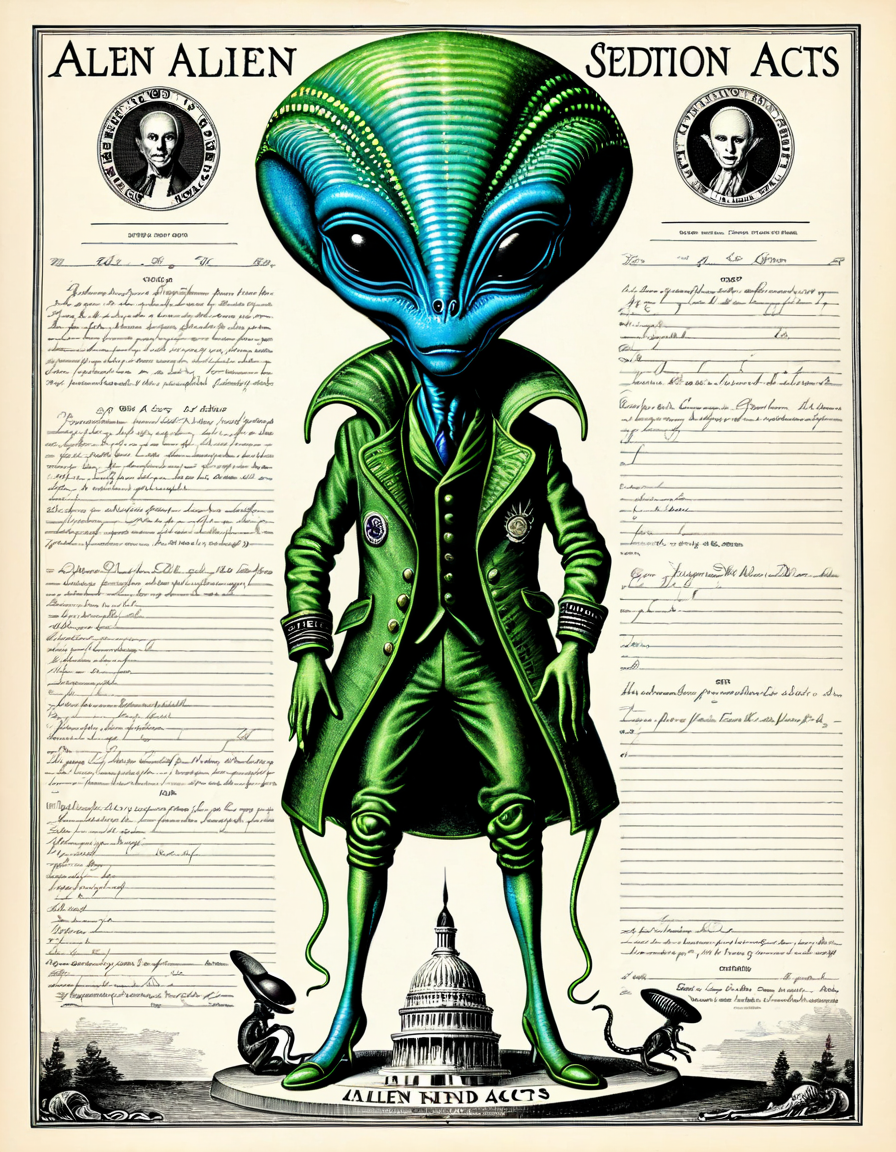
Technological Parallels: The Status of Civil Rights in a Digital Age
Just as homeowners rely on carbon monoxide detectors to protect themselves from hidden threats, citizens must also safeguard their rights in our digital landscape. The implications of the Alien and Sedition Acts remind us to critically assess how modern technology can become a tool for compliance. Surveillance technologies and social media present ethical dilemmas similar to those faced during the act’s enforcement, where government control over public expression was fiercely contested.
Contemporary platforms grapple with their role in moderating harmful speech while fostering free dialogue. With history as our guide, we must be wary of letting digital surveillance suffocate our expressions—a lesson both eternal and urgent.
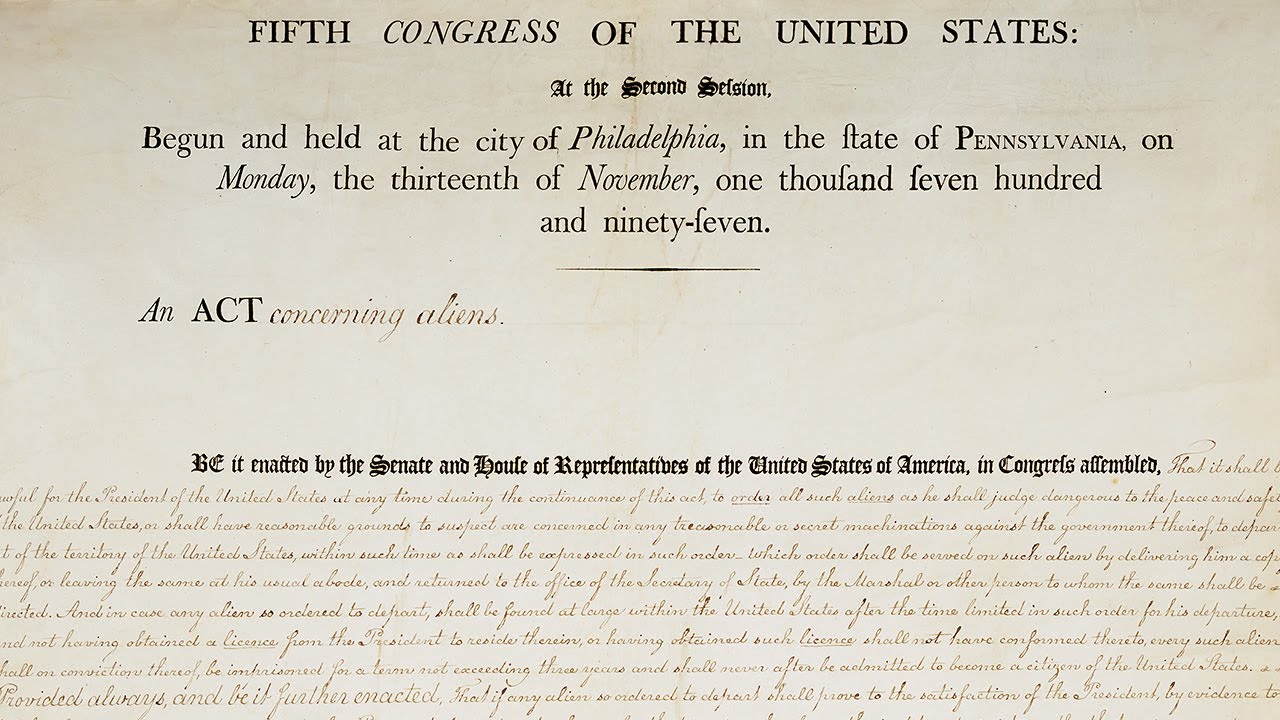
Final Thoughts: Learning from History to Forge a Responsible Future
Ultimately, the enduring legacy of the Alien and Sedition Acts encapsulates the fragile balance between authority and liberty that defines American democracy. It’s essential to draw upon historical experiences as we confront modern challenges—be it immigration policy, free speech, or national security. As we embrace the lessons of our past, we also hold the power to shape a future that honors the core values of freedom and justice.
Reflecting on history not only enriches our understanding but equips us to actively challenge potential injustices that might otherwise lead to a repeating cycle of oppression. In the face of contemporary challenges, the time to act is now—our rights depend on it.
Alien and Sedition Acts: Pivotal Moments in Early American History
The Alien and Sedition Acts, passed in 1798, were a hot topic during their time, sparking fierce debates about freedom and national security. Did you know that these acts allowed the government to deport immigrants deemed dangerous? In fact, during this tumultuous period, many criticized the legislation for infringing on civil liberties. It’s kind of like how Pauley Perrette Says She will never act again—sometimes, rules and regulations in society can abruptly change the course of personal and public life.
The Sedition Act’s Controversial Legacy
One of the most striking aspects of the Sedition Act was its chilling impact on free speech. Citizens could be fined or jailed for making false statements against the government. Imagine having to watch your words constantly, much like sorting through junk email and how to stop it from cluttering your inbox! This act didn’t just silence critics; it sparked a heated conversation, much like the discussions we see around the Crunchyroll Awards today, where creators anxiously promote their work and ideas fearlessly.
Impact on Immigration and Citizenship
The Alien Act extended the period required for immigrants to become citizens from 5 to 14 years. This understandably made many people apprehensive. How different things are today, right? Ethos dispensary provides an interesting metaphor for the evolving concept of citizenship. Just like finding the right product among many options, navigating the path to citizenship wasn’t straightforward back then. The acts represented an urgent response to fears of foreign influence, revealing a tension that still exists.
Ultimately, the Alien and Sedition Acts challenge us to examine the balance between security and individual rights. Much like understanding the discord Timestamp feature can vary from user to user, interpretations of these acts continue to shift over time, illustrating that what seemed like a solid decision could, in retrospect, raise more eyebrows than you’d expect! The political landscape may have changed since then, but the lessons from these acts remain just as significant as today.
